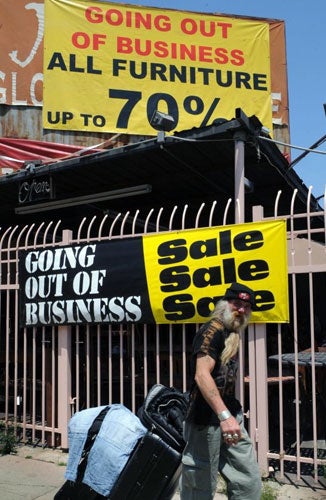Hard Brexit to cause surge in insolvencies, practitioners warn
Rising numbers of businesses are calling for help, and no Brexiteer bombast is going to change the disturbing reality on the ground

What do insolvency professionals think of Theresa May’s hard Brexit?
By that I mean the accountants and lawyers who deal with troubled businesses, and try to restore them to health so they don’t ultimately end up insolvent.
The answer is: not much. Prior to Theresa May’s big Brexit speech, R3, a trade body that represents them, conducted a survey of their views.
The results make disturbing reading if you have any interest at all in seeing the UK enjoying a prosperous, economically successful future.
R3 asked for views on the effect of a soft vs a hard Brexit by defining them thus: “Some commentators have discussed a scenario that involves the UK remaining part of the Single Market and retaining other features of EU membership. This type of scenario has been described as a 'soft Brexit'.
“Others have suggested that the UK leaves the Single Market and negotiates an entirely new trade deal with the EU. This type of scenario has been described as a 'hard Brexit’.”
As we now know, Ms May is opting for the latter.
Some 76 per cent of those surveyed think that will lead to more corporate insolvencies. Of those, 41 per cent believe that a hard Brexit will lead to a moderate increase in corporate insolvencies; 35 per cent are concerned that it will lead to a significant increase.
Just 8 per cent think a hard Brexit will have no impact on insolvency numbers. So watch out.
While we’re at it, what about personal insolvencies? The outlook for those is little better. Some 60 per cent of survey respondents think hard Brexit will mean more of them. Of those, 25 per cent think it will lead to significantly more; 35 per cent moderately more.
Brexit is already having a malign impact on businesses with 45 per cent of respondents saying it had been mentioned by businesses seeking help since June.
Three-in-ten (30 per cent) of respondents say have seen an increase in businesses seeking their advice since the referendum on 23rd of June, of which a fifth (21 per cent) cite Brexit as a significant factor in this increase. Another 57 per cent mention it as a factor.
The Out vote is already having an impact, a bad one. Some 72 per cent of those surveyed think the referendum result will cause corporate insolvency numbers to rise by the end of 2017, while 55 per cent believe business finances have been hurt.
The survey was conducted between November 11 and November 22 among 364 R3 members. To put that in context, there are 1,600 licensed insolvency practitioners in the UK in total. With more than two fifths having contributed to the poll, that’s a pretty impressive sample size.
Another thing worth remembering is that these people have no particular political axe to grind. They aren’t a part of any “project fear”. They are simply reporting on business conditions as they find them, and as they expect them to be.
Brexiteers have tended to stick their fingers in their ears in response to any negative data. When that doesn't work they trade in threats and insults. They’ve even taken to demanding that people like civil servants make up fairy tales about what a wonderfully wealthy country Britain will be after Brexit if they want to keep their jobs.
This survey is a reflection of a reality that none of the aggression that is the stock in trade of Brexiteers, when confronted with things they don’t like, is going to change.
Fasten your seat belts. It’s about to get bumpy.
Join our commenting forum
Join thought-provoking conversations, follow other Independent readers and see their replies
Comments